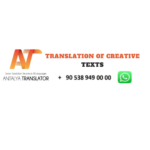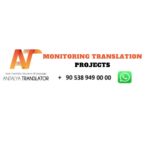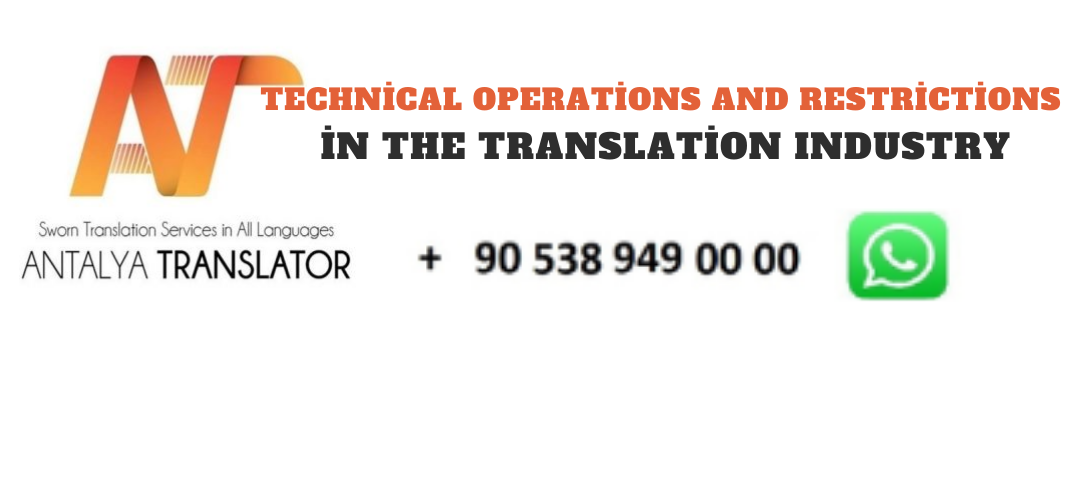
Translation of Creative Texts: Crossing the Boundaries of Language
September 9, 2023
Monitoring Translation Projects: A Map to Success
September 11, 2023The translation industry is an important bridge enabling worldwide communication. However, success in this field requires skilful management of certain technical operations and overcoming the constraints encountered. In this article, we will take a closer look at the key technical operations and constraints in the translation industry and discuss how to succeed in this field.
Outline of the Translation Process
Translation involves the process of translating text written in a source language into a target language. This complex process involves the following basic technical operations:
- Word and Sentence Translation: Basically, translators accurately translate the words and sentences in the text into the target language. Attention should be paid to grammatical rules, structural features of the language and the form of expression.
- Cultural Adaptation: Texts often have a specific cultural context. Interpreters should make special efforts to adapt them smoothly from the source culture to the target culture. For example, when translating a poet’s work into another culture, it is important to pay attention to local imagery and customs.
- Terminology Management: Especially in technical texts, it is very important that the original terminology is accurately translated. This can be supported by the use of terminology databases and specialised guides.
- Revision and Quality Control: In the final stage of the translation process, a meticulous review and revision of the translation is carried out. This is vital to correct language errors, eliminate inconsistencies and ensure the integrity of the text.
Translation Challenges and Restrictions
The translation industry faces some significant challenges and limitations:
- Language Diversity: There are more than 7,000 languages in the world, each with its own unique characteristics. This may require translators specialised in each language. For example, dealing with the complexity of Chinese, capturing the fluency of Spanish or understanding the right-to-left spelling of Arabic requires a special skill.
- Cultural Sensitivity: Texts are an important reflection of local culture. Therefore, translators must accurately translate not only words but also cultural elements. For example, the accurate translation of a proverb is critical to preserve the meaning of the text.
- Technological Change: Translation technologies are constantly evolving. Tools such as machine translation, automatic language recognition and translation memories are affecting the way interpreters work. It is important to keep up with these technologies and increase efficiency.
Tips for Successful Translation Management
To work successfully in the translation industry, you can consider the following tips:
- Specialisation and Education: You can provide quality translation services by specialising in a particular language or subject area. Continuous training and development can increase your success in this field.
- Effective Use of Technology: You can increase efficiency by using technologies such as translation memories, terminology databases and machine translation tools. However, remember that technology should be combined with the human factor.
- Collaboration: Large translation projects may require the co-operation of more than one translator. Good communication and co-operation skills are important.
- Quality Control: Always check the quality of your texts. Pay attention to revision processes and correct translation errors.
In conclusion, the translation industry has the task of transcending the boundaries of language and this process involves some challenges and limitations. However, with the right approach and strategies, it is possible to overcome these challenges and deliver successful translation projects.

